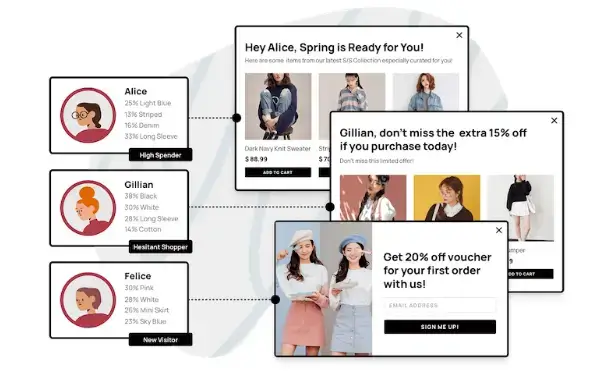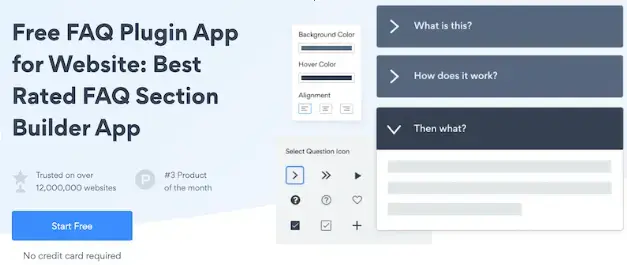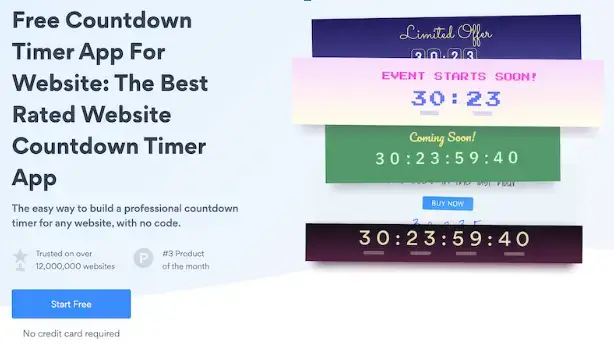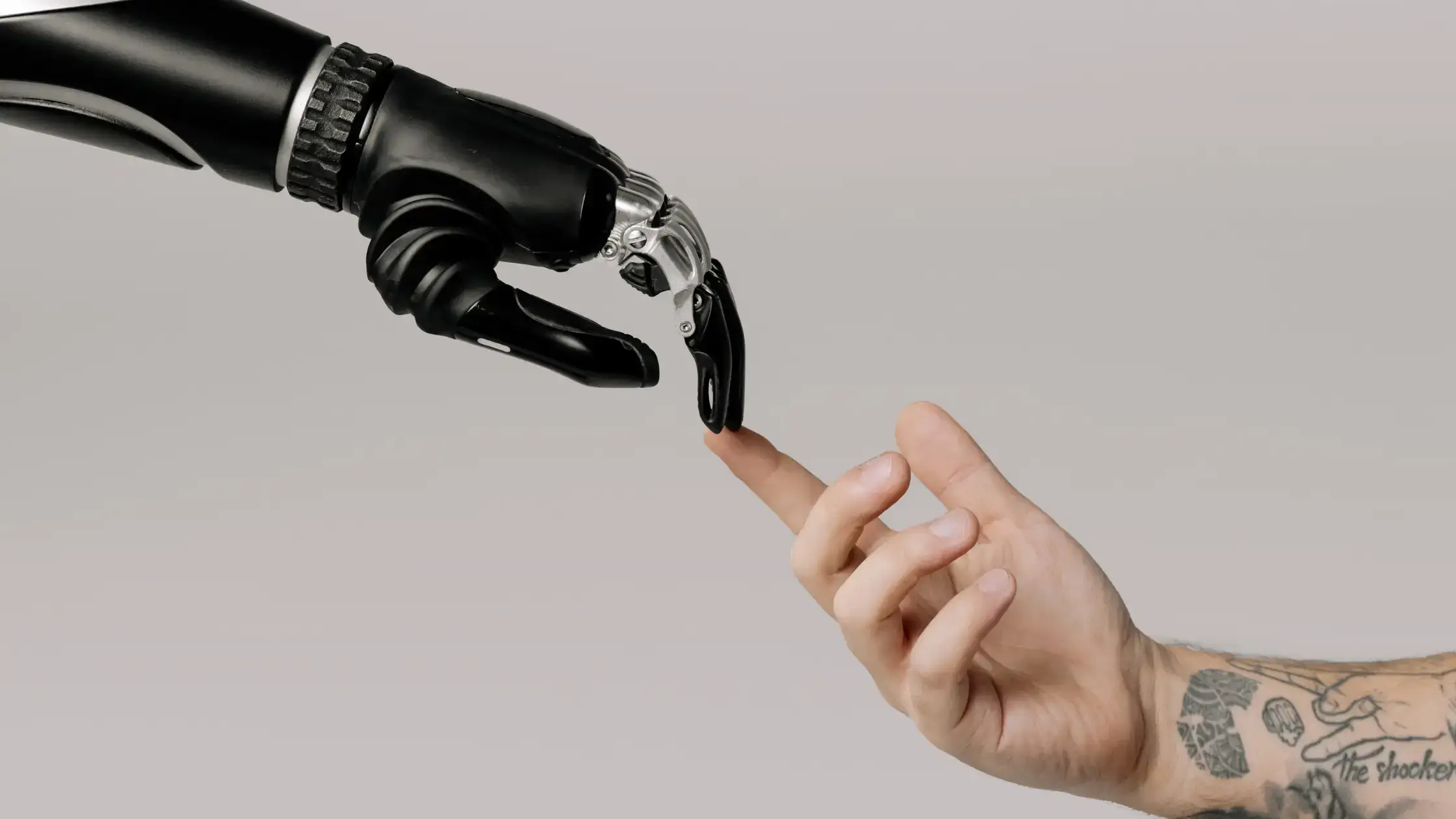In the dynamic marketing world, upselling and cross-selling are not just strategies; they are the secret ingredients to maximizing revenue and enhancing customer relationships.
But when we need to personalize these plans, how can we ensure they work every time? Here's where Artificial Intelligence (AI) comes in.
Imagine a tool that knows your customer's buying history and can guess what they'll need next. That's what AI can do.
By reading this article, you'll learn how AI can help make your upselling and cross-selling plans work better and feel more personal.
The Power of AI in Upselling and Cross-Selling
AI is changing how we think about upselling and cross-selling. AI is a tool that can study, identify, and predict based on data and patterns.
AI can look at a customer's past purchases, browsing history, and other behaviors to guess what they want next.
Instead of guessing what a customer might want, marketers can use AI to offer ideas based on a customer's behavior and likes. It makes their experience with your brand feel more personal and relevant.
AI can also help marketers find which customers are most likely to respond to upselling or cross-selling attempts, decide the best timing, and predict how different upselling and cross-selling plans will affect sales and customer satisfaction.
AI helps marketers to understand their customers better, make data-based decisions, and boost sales. AI is helping banks find cross-selling and upselling chances, leading to more income and better customer relations.
Similarly, AI is transforming e-commerce, with personalized product recommendations being one of the critical applications.
Best Strategies for Effective Upselling and Cross-Selling Using AI
- Product recommendations with AI
- Abandoned cart discounts with AI
- Customer Support automation with AI
- Enhancing customer engagement with AI-powered FAQs
- Boosting sales with a countdown timer
1. Product recommendations with AI
AI-powered recommendation engines are a cornerstone of effective upselling and cross-selling strategies. These engines use machine learning algorithms to study a customer's behavior and predict what they might want next.
Here's how it works: When a customer interacts with your website—by looking at products, buying something, or just clicking on a link—the idea engine collects and studies this data.
It looks at the customer's past buys, the products they've looked at, how much time they've spent on different pages, and other factors.
The engine uses this data to make a unique profile for each customer, which it uses to offer personalized product ideas. Then the page can show these ideas on the product page, shopping cart, or messages after a purchase.
But the best part about AI-powered idea engines is that they can learn and change. As they collect more data, they better predict what each customer will want. Their ideas become more accurate and personal, leading to better upselling and cross-selling.
Rosetta, an AI tool specializing in eCommerce recommendations and retention, is transforming how brands engage with customers.
Rosetta offers personalized product recommendations that align with shoppers' unique preferences by analyzing customer behavior and using AI-driven visual recognition.

L'Oréal leveraged Rosetta's AI capabilities to personalize their online marketing and significantly boost their key performance metrics.
Rosetta's AI solution automated product tagging provided personalized, contextual recommendations and delivered personalized pop-ups.
It allows L'Oréal to engage customers individually, resulting in a 140% increase in conversion rates and a 109% increase in average order value.
2. Abandoned cart discounts with AI
AI can significantly keep customers on your website who are about to leave or abandon their shopping cart. By studying a customer's browsing behavior, AI can guess when they will likely exit and offer a discount to encourage them to stay and complete their purchase.
If a customer has been navigating your website without adding any item to their cart, or if they've added items to their cart but have yet to go to checkout, the AI might guess that the customer is about to leave.
In response, it could trigger a popup offering a discount or special deal.

Taiwanese skincare brand Forest Beauty leveraged Rosetta's AI Exit-intent Promotions feature to reduce their website's bounce rate and increase sales conversions.
The AI tool's personalized exit-intent promotions engaged visitors about to abandon their carts or switch pages, offering customized recommendations and discounts.
This strategy led to a 14.25% decrease in bounce rate and a 9.96% increase in visitors' time spent on the page.
3. Customer support automation with AI
Customer support is essential in all businesses, with AI revolutionizing how firms manage it. AI-powered customer support can provide fast, accurate answers to customer questions, help agents offer quicker responses, and significantly cut the cost of human support representatives.
The AI-powered chatbot is one of the most effective tools for automating customer support. These customer support chatbots can answer questions and provide information based on stored data.
They can work 24/7, providing real-time help to customers whenever needed.
Tokio Marines Nichido Fire Insurance, a leading Japanese insurance company providing comprehensive solutions for fire, marine, and casualty insurance, used Engati's multichannel solution to optimize its processes by providing insurance policy quotes, tracking claims, and renewing requests online.
The AI chatbot answered 71% of the queries, effectively working as a lead generation stream and converting 78.5% of visitors into Marketing Qualified Leads (MQLs).
However, it's important to remember that while automation can significantly enhance customer support, it should only partially replace human agents.
You can use AI tools like chatbots to augment the experience and make agents more efficient, not replace them entirely.
Automation is not a set-it-and-forget-it project. While the system should get more intelligent by continually adding new data, it needs to be trained periodically with feedback to use it correctly.
Furthermore, testing your system and constantly seeking user input is crucial.

4. Enhancing customer engagement with AI-powered FAQs
Frequently Asked Questions (FAQs) are essential to any business website, providing customers instant answers to their common questions. However, creating and managing an effective FAQ section can take time and effort.
POWR's FAQ plugin is a highly-rated tool that allows businesses to create a comprehensive FAQ section on their website.
This tool provides deeper insights to site visitors, such as product information or refund policies, and helps create an entire FAQ Help Center section. It also helps reduce support requests by answering common questions on the page.
The plugin allows you to fully-customized questions and answers as you like and even separate them by section. You can select single or multiple responses and enable the search function for faster navigation.
The FAQ section can be visually prepared to match your brand style guidelines for color, fonts, elements, and copywriting.
So how can you generate your FAQ section content? You can use AI writing tools like ChatGPT to create answers to common customer queries.
Feeding AI data about your products and services can generate accurate and detailed solutions. It significantly minimizes the time and effort needed to build your FAQ segment.
As you receive new customer questions, you can use AI to generate answers and add them to your FAQ section.
The FAQ section also should be updated and expanded over time. It ensures your FAQ section remains up-to-date and continues to provide value to your customers.

5. Boosting sales with countdown timers
Countdown timers are a powerful tool that can significantly boost your sales by creating a sense of urgency among your customers.
These timers can count down to a specific event, such as a sale or product launch, or let customers know the remaining time they have to benefit from a special offer.
POWR offers a Countdown Timer plugin that lets you easily add a customizable countdown timer to your website. This plugin provides a range of features, including the ability to count down or count up, display different messages during and after the countdown, and customize the layout and appearance of the timer.
By showing the remaining time they have to benefit from a special offer, you can encourage them to purchase sooner rather than later. It can significantly increase your sales and conversions.
Moreover, countdown timers can drum up interest in upcoming events or promotions. By counting down to the start of a new product launch or sale, you can build anticipation among your customers and encourage them to check back when the event begins.
Use a countdown timer in various contexts, including landing pages, homepages, checkouts, or product pages.
They are equally effective in email marketing campaigns, which increase conversions by up to 400%.
Conclusion
In conclusion, using AI to create effective upselling and cross-selling plans is a game-changer in dynamic marketing.
AI's ability to study data, predict customer behavior, and personalize interactions makes it a powerful ally for marketers.
From AI-powered product ideas, abandoned cart discounts, customer support automation, FAQ generation, and creating urgency with countdown timers, AI is changing how businesses approach upselling and cross-selling, significantly improving customer relationships and ultimately increasing revenue.
------------------------------------------------------------------------------------
Author Bio:
Thoriq Noor, a versatile creative professional, leverages technology to amplify the quality of digital content. His blog offers valuable insights on building a thriving multimedia business and serves as a helpful resource for those looking to enhance their creative output.


